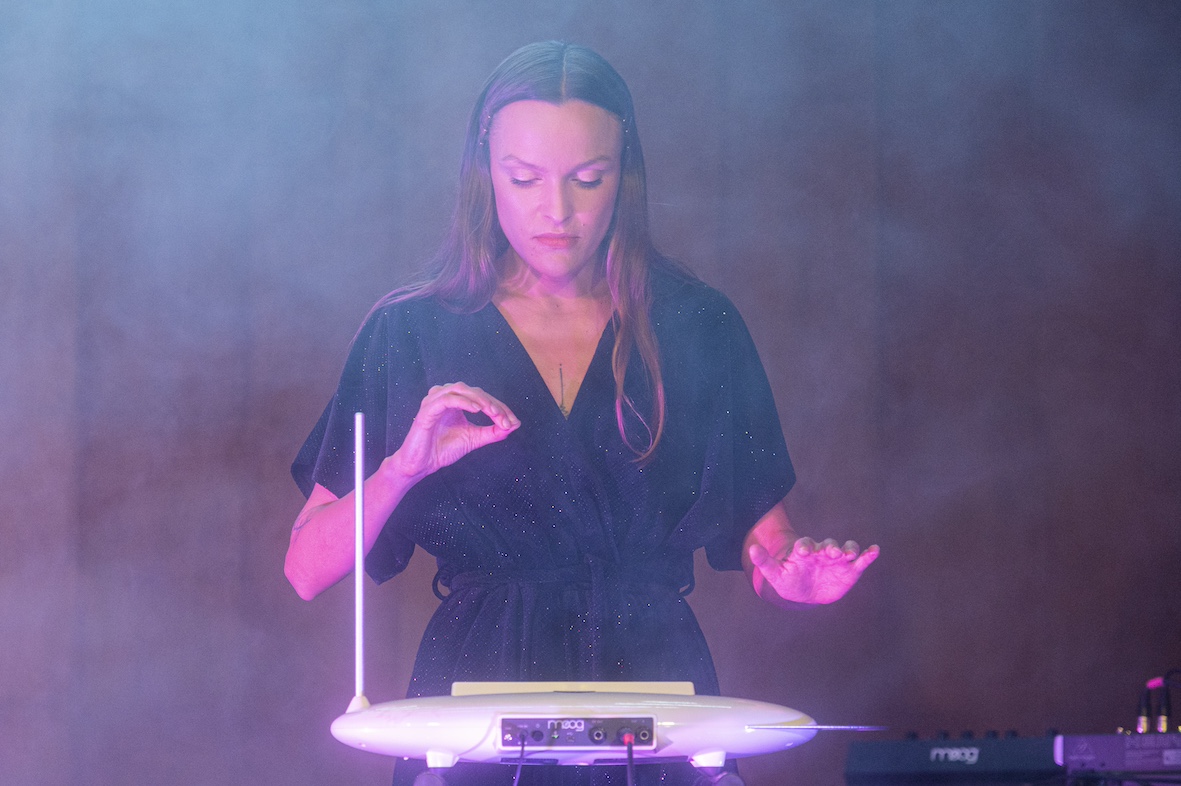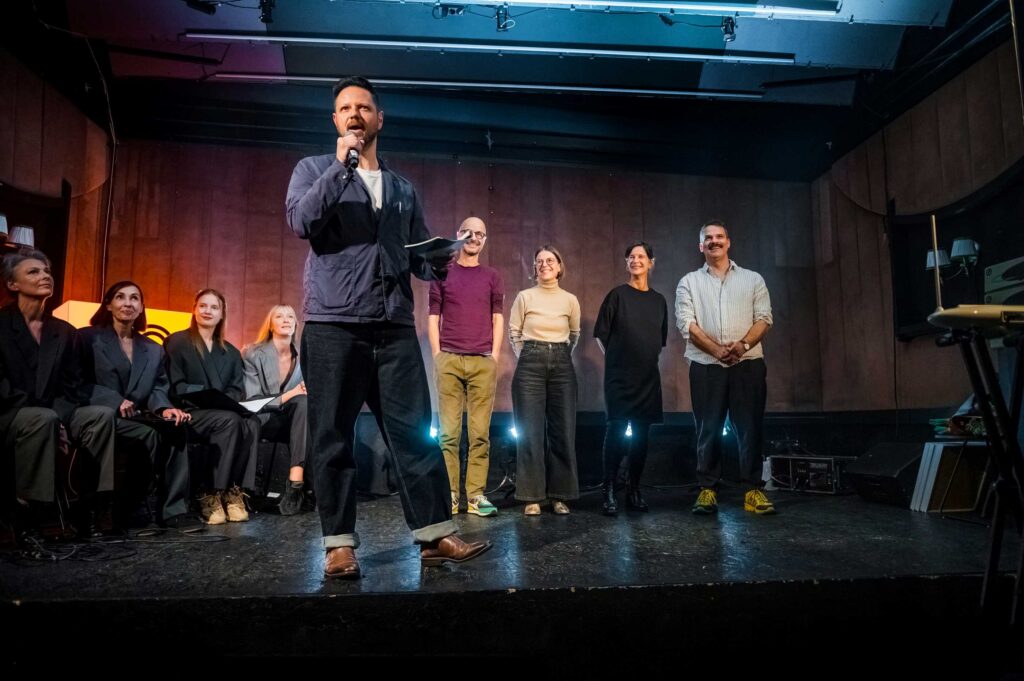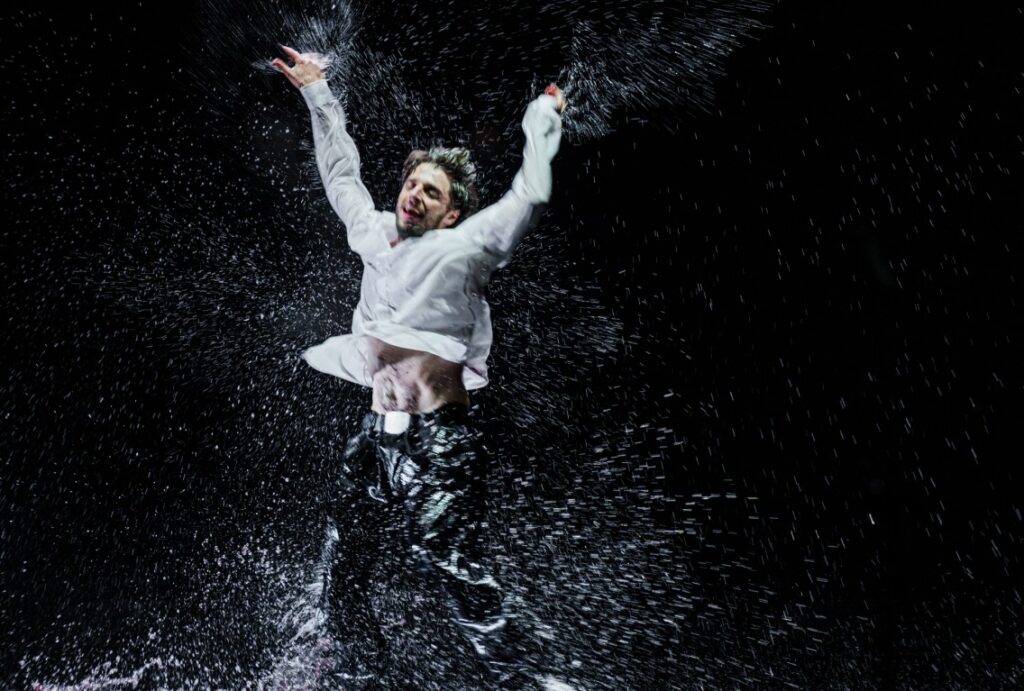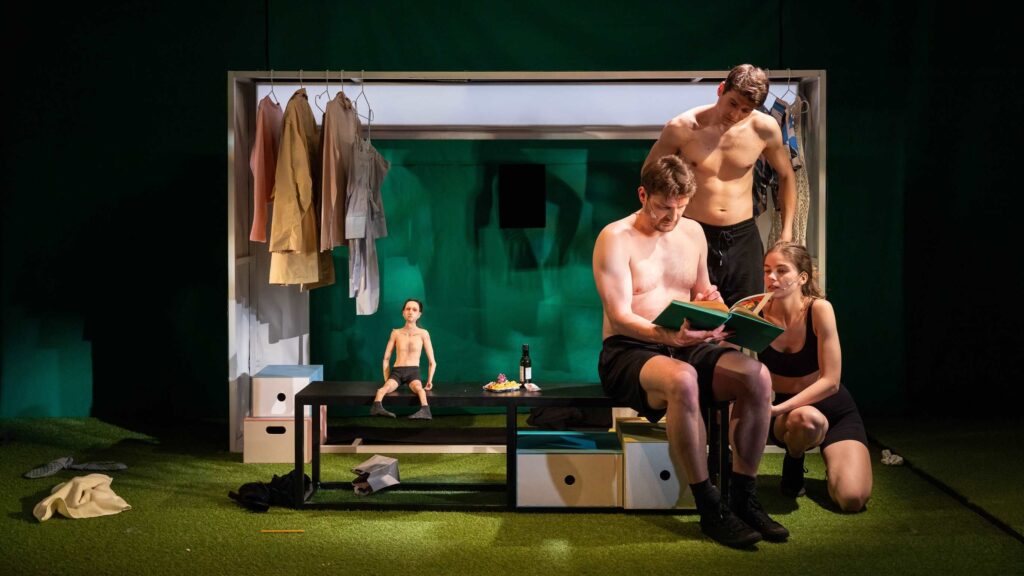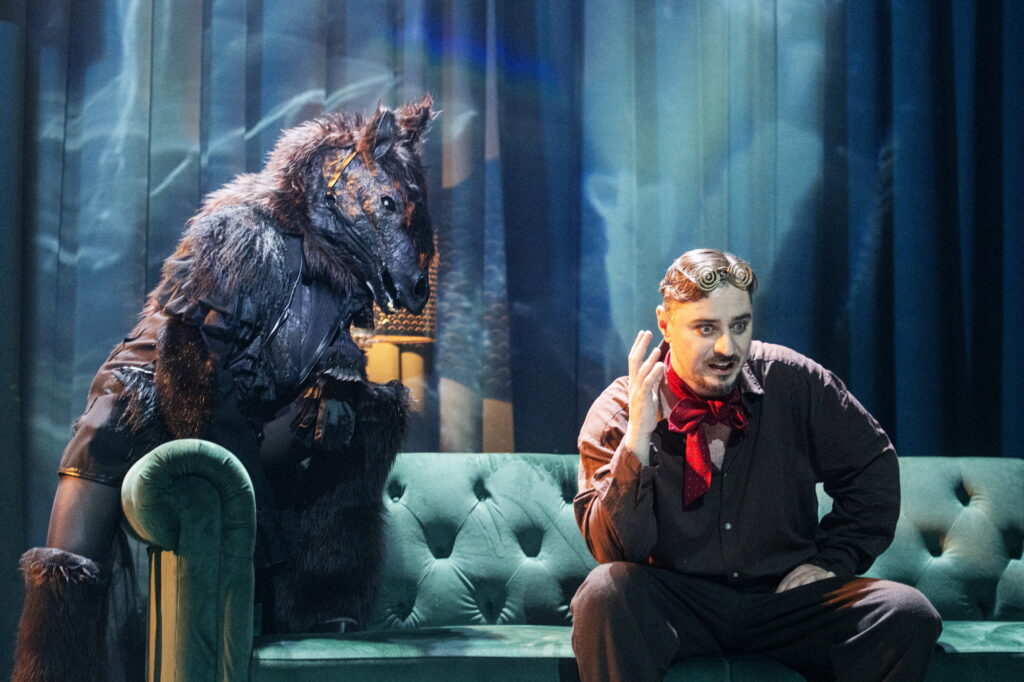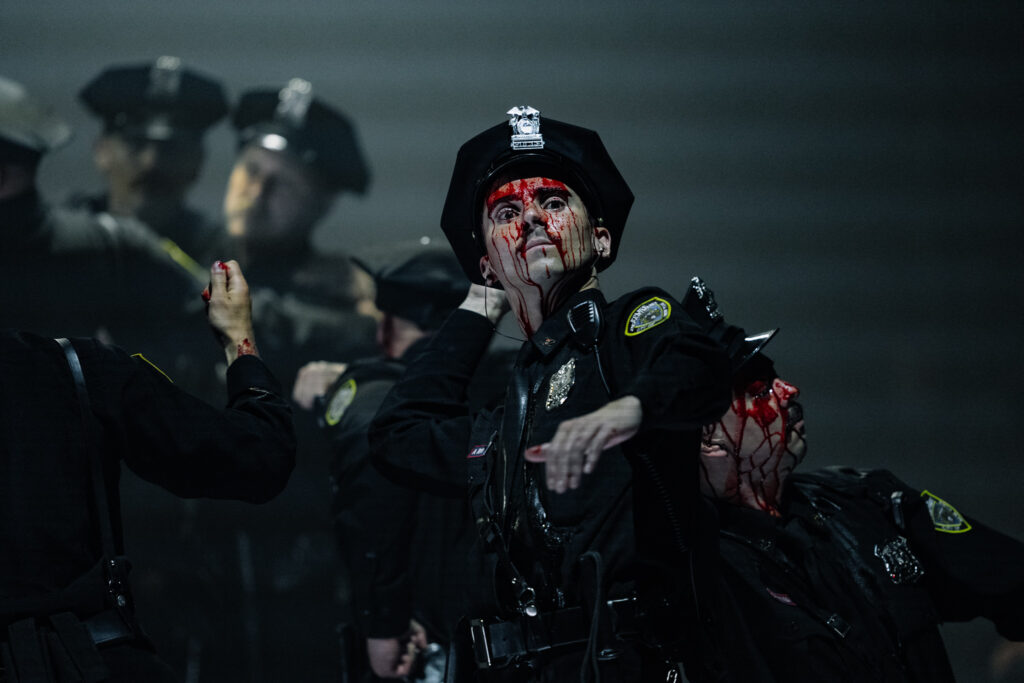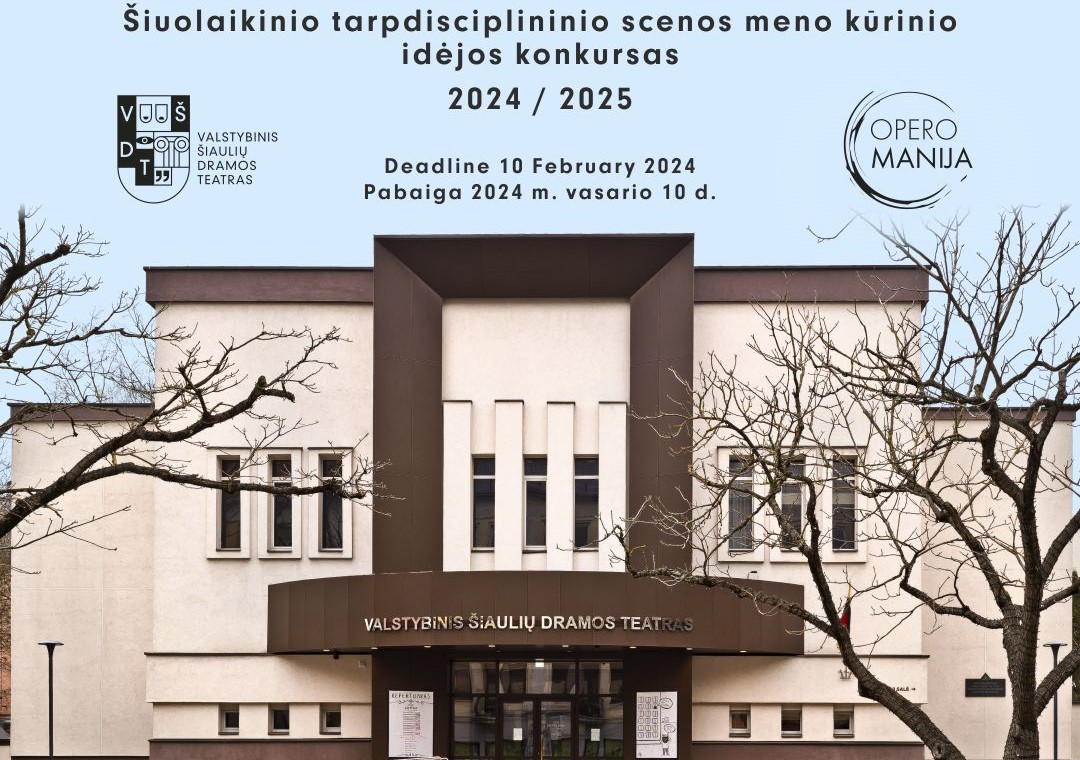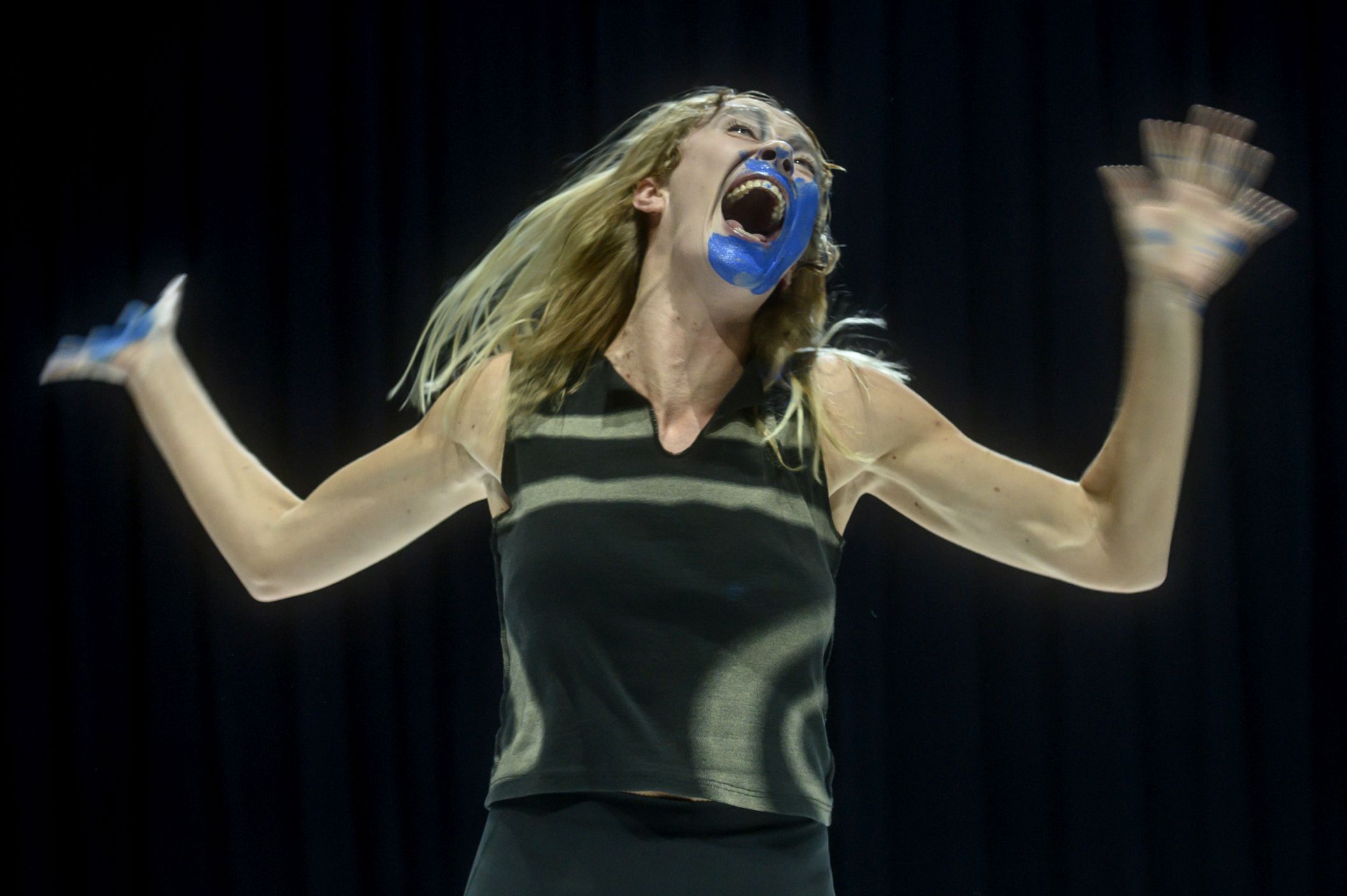“I keep thinking, what would music tell us if it were a character? What time period would it be from? What would be its mood?”, Agnė Matulevičiūtė, composer, sound artist and one of the most prominent and conceptual Lithuanian theatre musicians of the younger generation, told me in an interview.
It is difficult to present Agnė's work in a few sentences, or even in a full text, because her conceptual thinking, broad horizons, and open interest in different types of art (and not only) produce an individual approach towards each new project. For the sake of realising her ideas, Agnė's creative work refuses any “attachment” to defined stylistic trends, and instead proposes to embark on a new adventure each time, where one can rarely predict exactly what to expect.
It is a long standing tradition among critics of music as well as other arts, to look for parallels or the origins of creative solutions in the biographies of the artists. This strategy works quite well in the case of Agnė Matulevičiūtė (who sometimes uses the pseudonym Agnès M), since the interdisciplinary nature of her work can, first of all, be explained by her indirect path towards creation of music. Her biography includes a year spent studying French philology, then photography studies in London, and, upon her return to Lithuania, photography and media art studies at the Vilnius Academy of Arts. And then a Master's degree in composition at the Lithuanian Academy of Music and Theatre. The latter triggered the fire for further knowledge, so Agnė continues her doctoral studies in composition, delving deeper into conceptual music and presenting the term “Užgarsis” [contexts, concepts and discourses contained beyond sound media] to the general public, opening up wider contexts of sound perception.
Taking into consideration the colourful biography of the composer one does not wonder why Agnė's emergence and establishment in the theatre appear so natural. It is even more impressive from mathematical standpoint: starting from 2017, when the first performance for which Agnė wrote music was presented (according to menufaktura.lt, it was Adas Burkšaitis' Honey, I'm Home!), to this day, I have counted 22 performances featuring music composed by her. In the same year Agnė Matulevičiūtė became one of the artistic directors of the site-specific music festival Music in Space and she created a number of interesting works in the context of this project devoted to the relationship between sound, man and space. Agnė's curatorial flair has also been manifested in her work with the international festival Sirens for many years, since she has been the curator of the Sirens Club programme for quite some time.
In an attempt to discuss Agnė's creative work and its most characteristic features in a more specific way, first of all one has to mention that she is a creator of her generation. What does this mean? I am referring not only to the composer's use of an inclusive musical language, whose grammar is made up of a wide variety of different elements that combine the worlds of academic and non-academic music, but also to her commitment to conceptual creative thinking and her inclination to work in a team rather than individually (as is typical of many composers of the older generation). Not in a hierarchical way, but in a democratic way.
Working almost exclusively with younger generation Lithuanian theatre directors (her recurring collaborators include directors Eglė Švedkauskaitė, Antanas Obcarskas, Gediminas Rimeika, choreographers Greta Grinevičiūtė, Airida Gudaitė, Laurynas Žakevičius, and others), she is always engaged in the joint process of creation. She has often mentioned that in the performances she worked on, ideas were very often born in teamwork. The composer charmingly refers to her meetings with new creative friends as “going on dates”, because she always tries to get to know them better, to understand their approach towards music and its place in the theatre.
One example of such theatrical teamwork is the 2022 performance Memoirs of a Young Man directed by Eglė Švedkauskaitė, based on the novel by Ričardas Gavelis. The said director has a positive attitude towards actors' playing live music during the performances, a tradition that used to be particularly vibrant in Lithuanian theatre, but has faded in recent decades. Memoirs of a Young Man is one of the recent productions that brought the tradition of live music performance back to the stage, and Agnė Matulevičiūtė composed the music for this production together with the actors who play it. Sometimes Agnė works with live sound in the theatre, and sometimes she produces the “illusion of live sound”. This is what she did in the performance Alice (directed by Antanas Obcarskas), for which, as she herself said, she wrote the music as if it were a film.
By the way, Agnė Matulevičiūtė is not a stranger to creating music (both for theatre and for other contexts) together with other artists. For example, she wrote the music for Brilijant Advenčers together with another prominent theatre composer of the younger generation, Andrius Šiurys; the music for the bells in Hexameron was composed together with colleagues Matas Drukteinis and Gintaras Sodeika; the score for the film Isaac by Jurgis Matulevičius, which she composed together with her colleague Domas Strupinskas, has received a Silver Crane award.
The term “electroacoustic” might be a more accurate description of Agnė Matulevičiūtė's music - the multifaceted combination of acoustic instruments and electronics is a characteristic feature of her works. It is therefore not surprising that her music is loved not only by theatre directors but also by choreographers. Among her most notable works in dance performances is her collaboration with choreographer Greta Grinevičiūtė in her dance performances Dance for Washing Machine and Mother (2020), Dance for an Object and Child (2021) and Dance for an Object and Family (2022); the performance of Low Air dance theatre me two/We, the Clique (2021), in which Agnė Matulevičiūtė's music allowed the language of dance to speak to an adolescent audience, was well received.
Agnė's modern stance is further evidenced by the fact that she often performs her own music - she plays synthesizers and sings. Sometimes Agnė herself becomes a character in the performances. A good example would be Brilijant Advenčers, where she creates the sound design in real time, as well as shapes the narrative of the performance. In general, the music she creates for the theatre never turns into a mere emotional background. Sound is frequently personified, deeply integrated, often motivating or catalysing. Another good example would be an internationally acclaimed performance Silence of the Sirens by Laura Kutkaitė, where the voice of a woman is assigned a special role, turning into a symbol that becomes otherworldly through composer's creative imagination.
Creative engagements of Agnė Matulevičiūtė synthesise her experiences and passions. Whether it is her PhD project or... her exceptional love for synthesisers. She has been collecting them for some time now (at the last count, she had at least 10 synthesisers, but today there may be more). The collection does not stay in the home studio, to the contrary - quite often it is used in various creative projects, where synthesisers add that vibe of the eighties.
Although theatre pieces currently make up a large part of Agnė Matulevičiūtė's music, the numerous theatre projects do not prevent her from being active in other fields as well. In addition to the aforementioned work with films, Agnė also works on various installations and conceptual "pure music" pieces. In her piece Garden of Nymphs, which is part of the Nymphology project by the contemporary music ensemble Synaesthesis she explores womanhood and the feminist perspective; the performance Synth Porn (which was also released as vinyl record) is another manifestation of Agnė's love for synthesizers, where she gives new meanings to the word "porn", known for its negative connotations in the society; the boundaries of creative conceptualism are also explored in the piece Music for Mars, created for the new and experimental music series Kontaktas. With the latter work, the composer challenges the performers in a unique way: Arminas Bižys and Simonas Kaupinis has to perform the premiere of the piece while suspended in the air. Together with her friend, pianist Marta Finkelštein, Agnė reexamines the format of the piano recital in a project White Keys Black Keys, Inside Out. And these are only few of the most remarkable works by this composer.
The last paragraph of the text about Agnė Matulevičiūtė should end in suspension points - her success came early, her activities gained momentum, and she is never short of ideas. Therefore, I shall end with what I personally find most fascinating about her. Every time I meet Agnė, I am struck by her open eyes, burning with curiosity, indicating an inner creative fire, an inclination to collect and to integrate all artistic (and not only) experiences of life into her creative work.
Publikaciją finansuoja Lietuvos kultūros taryba.

